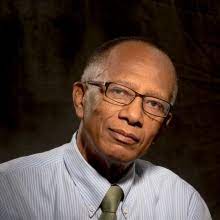Patterson, Orlando

Bio: (1940-) Jamaican-American sociologist. Orlando Patterson received his doctorate from the London School of Economics, and taught at the same university, only to later transfer to Harvard, where he continues to teach. Patterson is one of the most famous researchers of the historical, political, economic, and social aspects of slavery and racism. His doctoral dissertation, published under the title The Sociology of Slavery (1967), studies the history and consequences of slavery in the Caribbean, especially in Jamaica, where Patterson was born. This book examines the structure and functions of the Jamaican slave-owning society. Patterson explores the social relations of production and how the profits from slave labor were made. On the other hand, he studied the social institutions that existed to control slaves, but also the resistance offered by slaves. The aim was to investigate how social control and social order were maintained. He also studied the changes that have taken place over time in values and social order.
In Slavery and Social Death (1982), Patterson presents a comparative study of slavery throughout history and across the planet, in sixty-six different societies. The societies covered in this study were at different levels of political and economic development, some were tribal, some were ancient states, and some represented cases of slavery in the modern age. He concludes that slavery existed before the emergence of written history, until the twentieth century; and that there is no area on the planet where slavery, in some form, did not exist at some point. Patterson wanted to explore the institutional patterns that enable slavery, as well as the very nature and internal dynamics of slavery. In all slave-owning societies, slaves are separated from the rest of society because they did not have a social life outside the property on which they work, and this represents their "social death". In addition, they are depersonalized, so slaves lost their identity and become mere property. Patterson wants to resolve the contradiction that arises from the fact that slavery has always existed, and that, on the other hand, the idea of freedom was one of the most important in the development of civilization.
In his two-volume book Freedom (1991, 2006), Patterson explores all forms of freedom that have existed in history and that exist today, and singles out several different forms of freedom: personal, sovereign, and civic. In the books The Ordeal of Integration (1997) and Rituals of Blood (1998), he studies the enormous problems that the history of slavery and racism has left in the United States. African-Americans have made tremendous progress in the field of civil and economic equality, however, the legacy of racism has affected the problems that exist in family and gender relations among African-Americans. A large number of illegitimate children, high divorce rates, and numerous single-parent households pose a major problem for the African-American population. According to Patterson, the main reason for the unsuccessful integration of African- Americans into the wider American society is not racial difference, but the poverty of this population. He criticizes both social scientists and African-American leaders who use the stereotypes of a racially polarized society, while not paying enough attention to the poverty of the black population, which is present even in households where two people are employed. He believes that changes in the economy and culture can lead to an improvement in the position of African-Americans, while, on the other hand, he remains very skeptical about the strategies of affirmative action. He is also very critical of the lyrics of hip-hop musicians because he believes that they are full of hatred and misogyny.
Fields of research
Citizenship Control, Social Crisis Customs, Social Economy Freedom History Integration Leaders Morality Politics Poverty Prejudice Protests Race Slavery TribeTheoretical approaches
Afro-American StudiesMain works
The Sociology of Slavery: An Analysis of the Origins, Development and Structure of Negro Slave Society in Jamaica (1967);
Slavery and Social Death: A Comparative Study (1982);
Freedom: Freedom in the Making of Western Culture, vol. 1. (1991);
The Ordeal of Integration: Progress and Resentment in America’s „Racial“ Crisis (1997);
Rituals of Blood: The Consequences of Slavery in Two American Centuries (1998);
Freedom: Freedom in the Modern World, vol 2. (2006);
The Cultural Matrix: Understanding Black Youth (2015).

